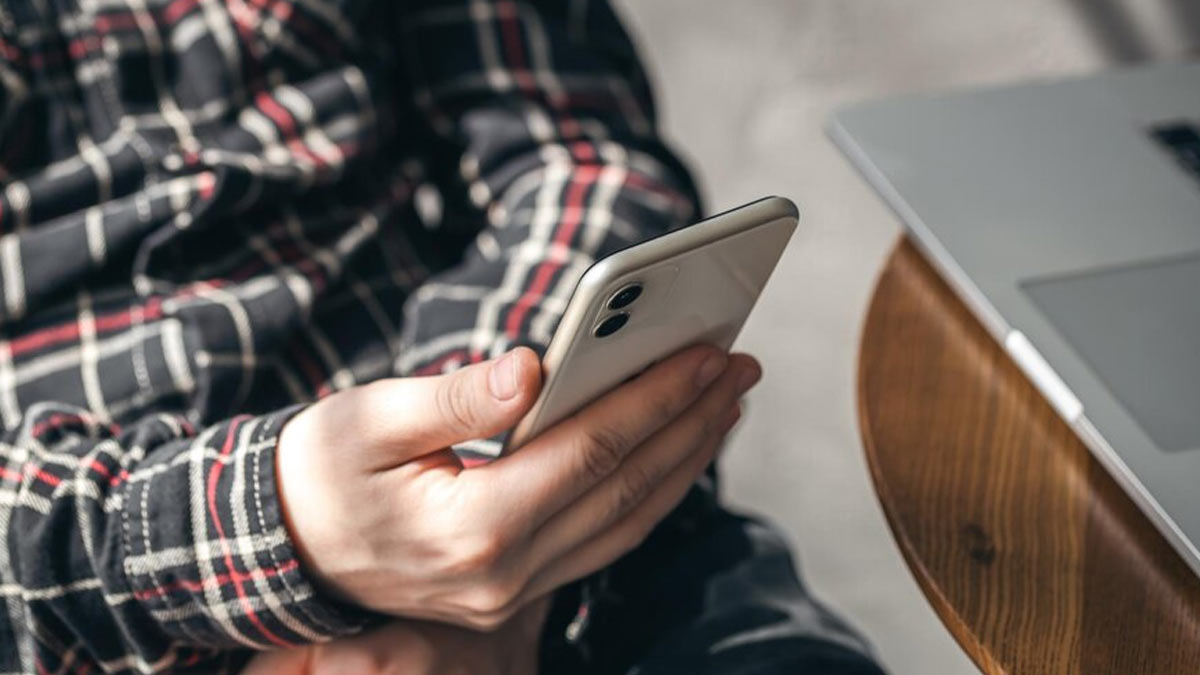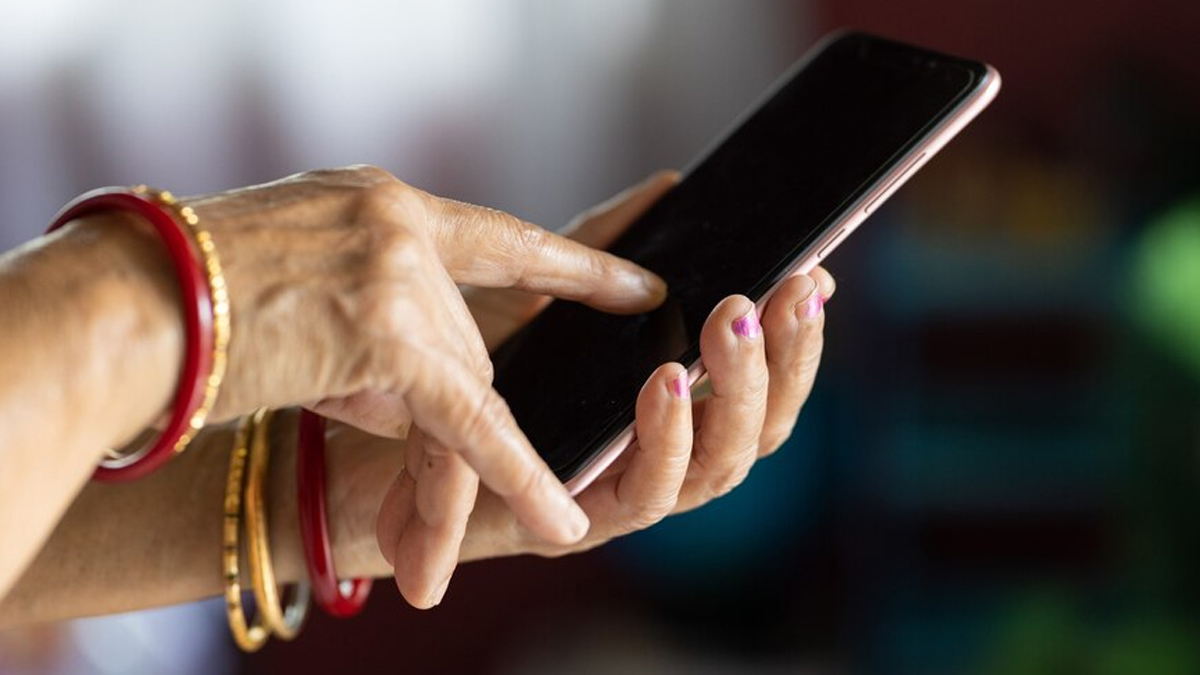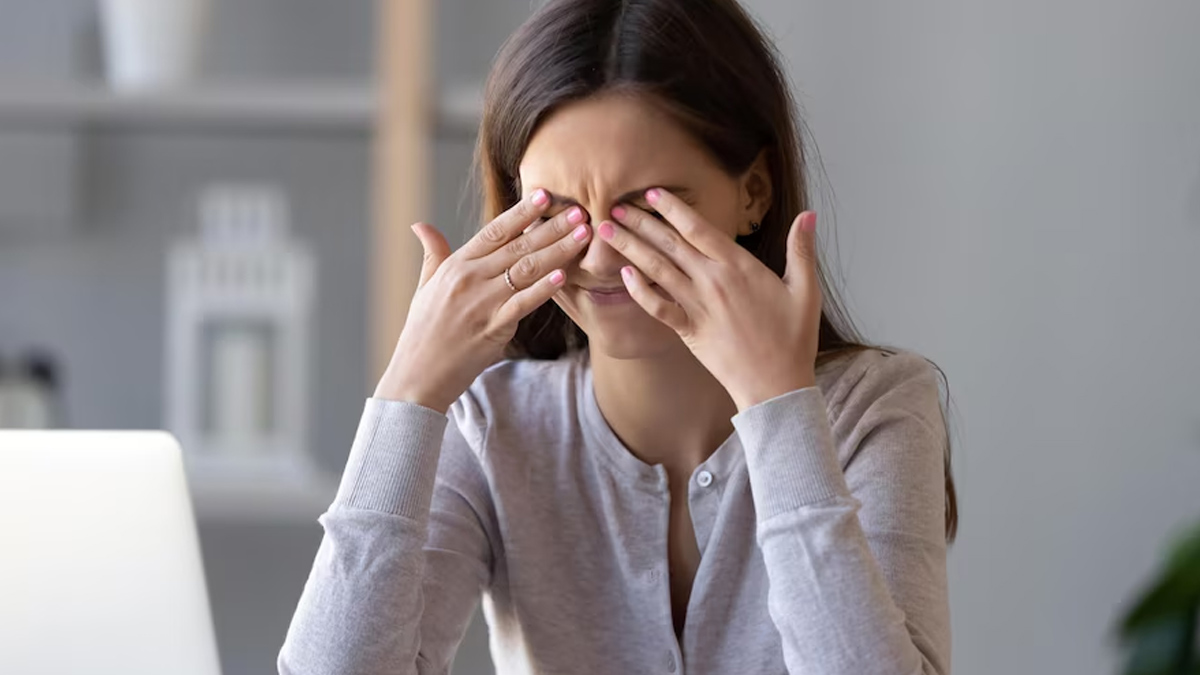
In our digital age, smartphones have become an essential part of daily life. Whether we're working, socialising, or just having fun, we often find ourselves glued to our devices. But all this screen time has led to a condition known as 'cell phone blindness.’ We spoke to our expert Dr Srikanth R, MBBS, MS (Ophthalmology), MRCS Ed (Ophthalmology), Apollo Spectra Hospital, Chennai, who explained this condition in detail.
Table of Content:-

Cell phone blindness refers to temporary vision problems caused by prolonged smartphone use, especially in low-light conditions. In a 2019 case study, researchers documented a 68-year-old woman who experienced this phenomenon. She reported temporarily losing vision in both eyes for several minutes whenever she got up to use the restroom at night.
Symptoms Of Cell Phone Blindness

“Imagine spending hours scrolling through your phone before bed, only to find that when you finally look away, your vision is blurry or you can’t see out of one eye. These moments can be alarming and are common symptoms of cell phone blindness,” said Dr Srikanth. He listed some common signs that you might notice as follows:
- Temporary Vision Loss: You might suddenly find that your vision in one or both eyes is impaired for a few minutes to a few hours after using your phone in the dark.
- Eye Strain: Ever feel like your eyes are burning or aching after staring at your screen for too long? That's eye strain, a frequent complaint among heavy phone users.
- Blurred Vision: This is when an individual struggles to focus on distant objects after a long screen session is another telltale sign.
- Dry Eyes: If your eyes feel dry and irritated, it's likely because you're not blinking enough while using your phone.
- Headaches: That persistent headache could be your eyes protesting against the relentless blue light from your screen.
“These symptoms, while typically temporary, can cause significant discomfort and hint at deeper issues from excessive screen use,” said Dr Srikanth.
Also Read: Parenting In The Digital Age: Expert Explains How Smartphones Can Harm Your Kids’ Hearing Health
Causes Of Cell Phone Blindness
Understanding why cell phone blindness happens can help us make smarter choices about our screen habits. Here’s what contributes to this condition, as listed by the expert:
- Blue Light Exposure: Your smartphone emits blue light, which can reach deep into your eyes, potentially harming your retina and messing with your sleep.
- Poor Lighting: Using your phone in dim environments forces your eyes to adjust quickly to the bright screen, leading to strain and temporary vision problems.
- Prolonged Screen Time: Binge-watching shows or scrolling through phones for hours without breaks tires out your eye muscles.
- Poor Posture: Holding your phone too close or at awkward angles can strain your eyes even more.
- Existing Eye Issues: If you already have vision problems like nearsightedness or astigmatism, you're more likely to experience cell phone blindness.
Also Read: Unravelling The Mystery of Colour Blindness: Symptoms, Causes, Diagnosis, And Treatment
Diagnosis and Management For Cell Phone Blindness

“Getting a visual acuity test, and getting an eye examination using specialised tools to check for any damage or abnormalities. You might also fill out a digital eye strain questionnaire to assess how your screen habits are affecting your eyes,” said Dr Srikanth.
To manage cell phone blindness, follow these expert-recommended tips:
- Consider regulating your screen time by taking regular breaks
- Using blue light filters
- Ensuring proper lighting
- Adjusting your phone’s ergonomics
- Make a conscious effort to blink more often and stay hydrated
If symptoms persist, consult an eye care professional who might recommend artificial tears, glasses with blue light filters, or other treatments to protect your vision.
Bottomline
Dr Srikanth concluded, “While cell phone blindness is a growing concern in our tech-centric world, being aware of its symptoms, causes, diagnosis, and management can help you take steps to protect your vision. By making simple changes to your screen habits and seeking professional advice when needed, you can enjoy your digital devices without compromising your eye health.”
[Disclaimer: This article contains information provided by an expert and is for informational purposes only. Hence, we advise you to consult your own professional if you are dealing with any health issues to avoid complications.]
Also watch this video
How we keep this article up to date:
We work with experts and keep a close eye on the latest in health and wellness. Whenever there is a new research or helpful information, we update our articles with accurate and useful advice.
Current Version
